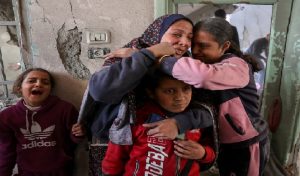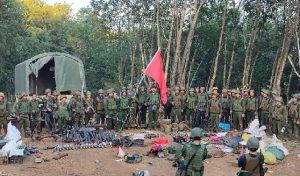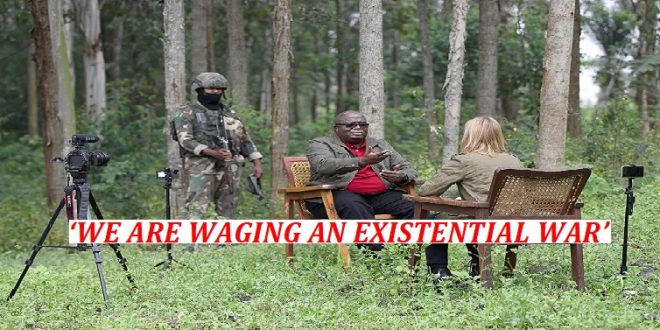03-01-2025
KINSHASA: For three years, the eastern Democratic Republic of the Congo (DRC) has been embroiled in an armed conflict between the army and the M23 rebel group that has killed hundreds of people and displaced nearly two million.
 M23 was first formed after a mutiny within the Congolese national army (FARDC) in 2012. Though the initial rebellion was crushed, the group took up arms against the army and allied “Wazalendo” self-defence groups again in 2022, and has since seized swaths of territory in North Kivu province.
M23 was first formed after a mutiny within the Congolese national army (FARDC) in 2012. Though the initial rebellion was crushed, the group took up arms against the army and allied “Wazalendo” self-defence groups again in 2022, and has since seized swaths of territory in North Kivu province.
M23 says it is defending the interests of minority Congolese Tutsis, many of whom say they suffer discrimination and exclusion in DRC for their ethnic links to Rwanda’s Tutsi community.
Kinshasa sees M23 as the greatest security threat it currently faces, with regional tensions escalating as bodies including the United Nations accuse Rwanda of supporting M23 with troops and weapons, fueling the rebellion something Rwanda denies. Despite attempts at ceasefires and negotiations including the 2022 Nairobi peace process and recent mediation efforts by Angola fighting has continued. In Lubero, M23 advanced several dozen kilometres in just a few days in December.
Bertrand Bisimwa, the head of the political wing of M23, maintains that the group is fighting a “defensive” war. He spoke to Bojana Coulibaly, a researcher specializing in peace and security in Africa’s Great Lakes region, about the war in eastern DRC and hopes that dialogue will prevail.
Bertrand Bisimwa: Our demands boil down to a struggle for survival. We are waging an existential war because the Congolese government is subjecting part of its population to death. And this didn’t start today. It has been going on for decades, where people are forced to seek refuge, fearing death, avoiding being killed. There is hate speech and there is also a kind of radicalization that is taking shape. A part of the citizens, namely the Tutsi, serve as scapegoats for the Congolese government to distract the people from its governance failures.
 So, we told ourselves that we must not sit idly by and watch our citizens being killed in this way. This is why we are currently waging a defensive war to protect these citizens. So that they do not continue to be put to death. They are not second-class citizens. The state must take care of them and not consider them as stateless, or who are not Congolese. They are full-fledged Congolese citizens, like all other Congolese.
So, we told ourselves that we must not sit idly by and watch our citizens being killed in this way. This is why we are currently waging a defensive war to protect these citizens. So that they do not continue to be put to death. They are not second-class citizens. The state must take care of them and not consider them as stateless, or who are not Congolese. They are full-fledged Congolese citizens, like all other Congolese.
Coulibaly: Recently, there’s been intense fighting between government forces and M23 in Great North Kivu, in the Lubero territory. Could you explain what happened?
Bisimwa: In March, the mediator in the crisis between Rwanda and the DRC, Angola’s President [Joao] Lourenco, had invited us to Luanda to convey the message from the African Union which was to sign a ceasefire. We signed the ceasefire, but Kinshasa refused to sign it. Later, Kinshasa simply continued the war against us, and we started again we continued to defend ourselves.
On December 15, a meeting was scheduled between the Congolese government and the Rwandan government, which also had just signed their ceasefire, although the Rwandan government or the Rwandan military are not on Congolese soil and are not fighting.
The Congolese government wanted to have a victory on the ground before the 15th. They put pressure on us, with the aim of obtaining a victory that would put them in a comfortable position in order to put Rwanda in front of a fait accompli that either they sign what Kinshasa wanted, or they would practically derail the Luanda meeting. That was the government’s objective. (Int’l Monitoring Desk)
 Pressmediaofindia
Pressmediaofindia




